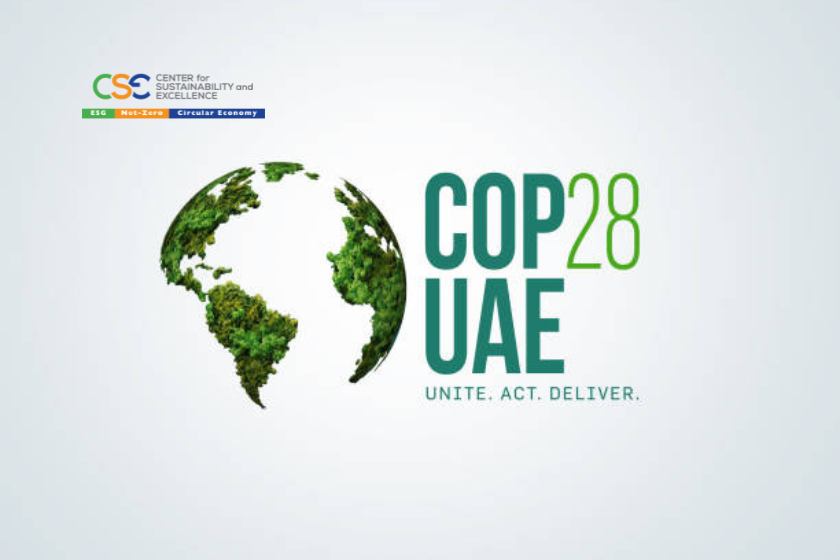Gulf and Middle East countries grapple with critical challenges including water scarcity, extreme heat, geopolitical tensions, and dependence on fossil fuels. To address these, initiatives like economic diversification, renewable energy investments, and regional cooperation are crucial. COP28 holds immense potential in catalyzing sustainable practices, fostering resilience, and accelerating the transition towards a greener, more sustainable future in the Gulf and Middle East.
What are the key challenges faced by Gulf and Middle East countries?
The Gulf and Middle East countries, particularly those in the Gulf Cooperation Council (GCC), face several key contradictions in their efforts to address climate change and pursue decarbonization. To achieve an effective transition, it is imperative to employ innovative and adaptable strategies that balance economic interests with the need to address climate change.
These nations heavily rely on revenues generated from oil and gas exports, forming a significant portion of their government income and export earnings. Transitioning away from fossil fuels presents a considerable economic challenge, necessitating the identification of alternative sources of revenue and employment opportunities.
Moreover, the GCC countries are pressured by the international community to reduce carbon emissions and contribute to global climate goals, yet they must also provide energy access and economic stability for their burgeoning populations. This creates tension between fulfilling domestic energy needs and meeting international climate commitments.
High-income GCC nations like the UAE, Saudi Arabia, and Qatar have set ambitious net-zero carbon targets, whereas other regional oil and gas producers, such as Iran, Iraq, and Libya, grapple with lower income levels, larger populations, and political and economic instability, making it more challenging for them to invest in decarbonization efforts. The GCC countries assert that they play a crucial role as low-cost, low-carbon, and politically stable energy producers, contending that increasing their market share in oil and gas exports is beneficial for both the climate and consumers.
However, this assertion conflicts with calls for a rapid reduction in global fossil fuel production and consumption. The level of investment required in the oil and gas sector is a subject of debate. While some entities like the International Energy Agency (IEA) warn of potential “underinvestment” in production capacity, others argue that current investment levels are adequate to meet medium-term projected demand. This raises questions about striking the right balance between investing in the fossil fuel industry and transitioning towards renewable energy sources. Although interest in low-carbon hydrogen is evident, its financial viability compared to oil and gas remains a hurdle to full-scale replacement.
Strategies and initiatives for Gulf and Middle East countries.
The Gulf and Middle East countries, particularly those in the Gulf Cooperation Council (GCC), are employing a diverse set of strategies and initiatives to make meaningful progress towards decarbonization. These measures encompass the deployment of renewable and nuclear power, adoption of reverse osmosis desalination, implementation of carbon capture and storage (CCS) technologies, integration of hydrogen in industry, and the promotion of public transport and electric vehicles.
Additionally, they are utilizing instruments like Carbon Contracts for Difference (CCFDs) to incentivize CCS and low-carbon hydrogen production. Plans also involve bio sequestration, direct air capture of carbon dioxide, development of sustainable aviation fuels (SAF), and establishment of green shipping corridors. Leading oil companies, including ADNOC, are setting ambitious net-zero targets and emission reduction goals. The region is making strides in technological advancements to improve the carbon footprint of oil and gas production.
Moreover, countries like Saudi Arabia, the UAE, and Oman are positioning themselves as leaders in low-carbon hydrogen production, aiming for both export and domestic use in industries such as steel. These nations are actively seeking strategic partnerships and engaging in international forums and initiatives to drive investments and promote decarbonization. Furthermore, entities like Masdar, AMEA Power, and Acwa Power are investing in renewable and hydrogen projects, not only within the region but also globally.
COP28 can significantly contribute to fostering a more resilient and sustainable future for Gulf and Middle East countries. The conference provides a crucial platform for these nations, particularly those in the Gulf Cooperation Council (GCC), to showcase their innovative decarbonization strategies and initiatives. Through COP28, they can forge strategic partnerships, gain international recognition, access climate finance, and learn from global best practices.
Additionally, the conference offers an opportunity to address specific regional challenges, influence global agreements, strengthen climate diplomacy and demonstrate technological advancements in areas like renewable energy and carbon capture. Furthermore, COP28 encourages the development of sustainable aviation fuels and green shipping corridors, aligning with efforts to reduce emissions in the transportation sector.
Now you have the opportunity to gain invaluable insights and practical knowledge on implementing sustainable practices and navigating the challenges faced in the Gulf and Middle East region. Register for our upcoming Gulf & Asia | Certified Sustainability (ESG) Practitioner Program, Advanced Edition 2023, Digital Version with Live Zoom Sessions on November 13-14 & 16, 2023 to gain a comprehensive understanding of the key challenges faced by Gulf and Middle East countries, explore innovative strategies, access expert insights, engage in interactive learning and apply knowledge in a real-world context.








